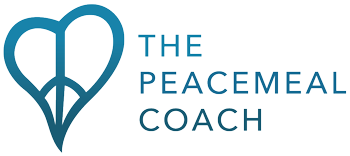It is an emergency for parents when anorexia takes hold of their daughter. An anorexic’s health rapidly deteriorates if she continues to restrict food and lose weight. It is therefore very important to get medical help to determine whether she is medically stable enough to be at home while she is being treated, or she needs to be hospitalized. Either way, parents want to get help for their daughters as soon as possible.
Obviously, getting an anorexic to eat is an important part of treatment. But as a mom, it feels urgent to treat the horrible feelings of anxiety and depression that anorexia causes. I thought that in order to get my daughter to eat, she first needed psychiatric and psychological help to fix her feelings. I soon learned that any attempt at therapy or psychiatric help, including medication, was unlikely to alleviate any of her symptoms.
What? Can’t someone do something to help her feel better right now?
The answer that no parent wants to hear is “no.” In fact, your daughter will most likely feel worse before she feels better. Why? The body in starvation can’t properly metabolize anxiolytics or antidepressants, and the brain in starvation is not capable of absorbing and applying therapeutic counseling techniques.
I wanted someone to immediately help my daughter, and to assure me that there was an effective medication and/or treatment that would make her better, and that she’d recover soon. Instead, the opposite message came across loud and clear.
Anorexia is not very well understood. There is no treatment for anorexia that is agreed upon by experts, and that has a high recovery rate. Also, in those who do recover, it can take years. In other words, anorexia recovery is a marathon and not a sprint.
So, what did I wish I had known in the beginning?
I wish I had known that food comes first.
In the hierarchy of treatment, food comes before feelings. Getting her to eat is the very most important thing. Food is the only medicine that works, at least until her weight is restored enough that she will respond to medication and therapy. It can sometimes takes months after her weight is adequately restored for her brain to be healed enough to be relieved of anxiety and depression.
It was counterintuitive to me that she had disordered thinking that led her to severely restrict her eating, but she couldn’t get relief from her disordered thoughts and resulting emotional pain. I had to come to terms with the fact that she would have these debilitating symptoms until some unpredictable length of time passed and her brain had adequately healed.
I found out that any anxiety or mood disorders she might have had before anorexia would still be there even if she restored her weight. So, the part that feels the most distressing to me because it appears to cause her the most distress, the severe anxiety, might not be improved for a very long time.
It made more sense to me that her psychological issues needed to be addressed before she would eat, but it turns out that she needed to eat the food in order to feel better. The weight, as in my daughter’s case, can be lost quite rapidly, but it can take a really long time for her brain and body to heal even if she eats and restores her weight. With anorexia, logic doesn’t apply.
Consistently and calmly requiring your daughter to eat so that she receives adequate food (medicine), is necessary before the psychological symptoms can be addressed. In fact, especially in those who have no pre-existing anxiety disorders or depression, many, if not all of the symptoms of anxiety and depression will end once the body and brain have had time to completely heal after weight restoration and continued adequate nutrition.
The good news is that parents are in the best position to determine how to manage their daughter’s treatment. Amidst the complexity and the confusion, parents who can learn to neutralize their thoughts and feelings about anorexia become empowered to advocate for their daughter. Coming up with thoughts that are useful to me as I navigated my daughter’s treatment is a life-coaching skill that enabled me to stay calm and confident at every twist and turn on the road to my daughter’s recovery.
I would love to help you learn how to create useful thoughts that will empower you to be the parent you want to be for your daughter. Email me at jenni@peacemealcoach.com to schedule a free 20-minute mini coaching session.






